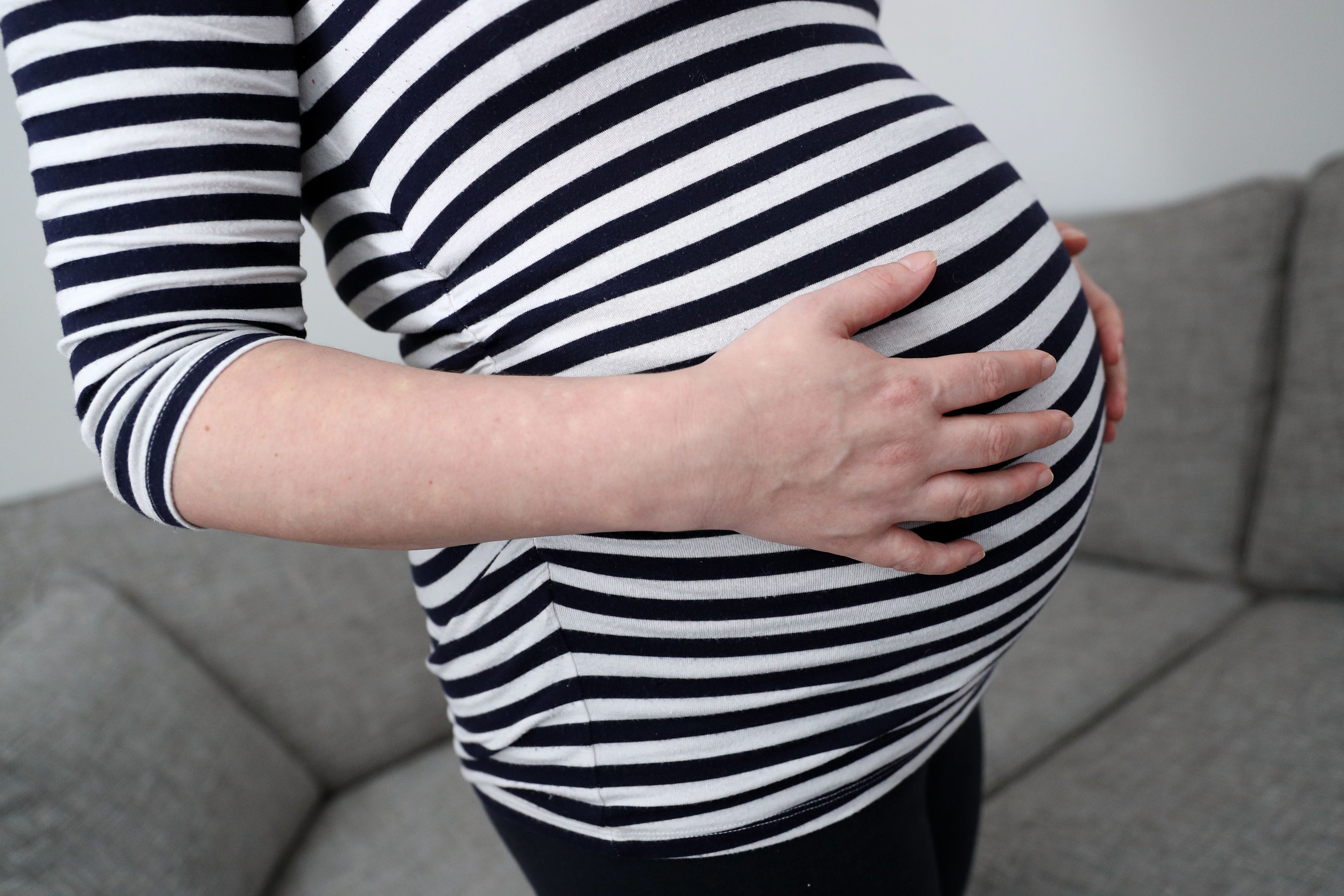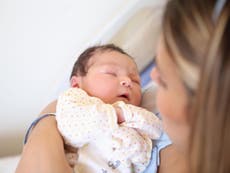Calls for change to pregnancy scans that would ‘save lives’
‘It is an important step in improving safety in our maternity hospitals and providing better care for pregnant women,’ lead researcher says

Healthcare professionals have called for pregnant women to receive a third routine scan at the end of their pregnancies as new research suggested this could save babies’ lives.
An extra scan in the third trimester of pregnancy could curb the number of unexpected breech births by 70 per cent, as well as the risks of newborn babies having severe health complications, according to researchers at St George’s, University of London.
Professor Asma Khalil, who led the report, told The Independent it is likely the rules on this could change if the government decides to invest the money as she argued the move “could absolutely save lives.”
The Professor of Obstetrics and Maternal Fetal Medicine at St George’s, University of London added: “It is an important step in improving safety in our maternity hospitals and providing better care for pregnant women and saving babies’ lives”.
The research provides “strong evidence” offering routine scans late in pregnancy to see the position the baby is lying in “improves the outcome for the baby and for the mother”, Professor Khalil said.
She noted fewer than 10 hospitals in the UK offer routine third trimester scans, including St George’s, Kings College London, and Lewisham in London as well as Medway, Norwich and Oxford outside the capital.
Professor Khalil added: “At the moment being able to offer this scan routinely would be very difficult because of a shortage of sonographers and the cost. Handheld ultrasound scans would be a cheaper option and much easier to implement - midwives would be able to offer this in routine visits.”
Researchers, whose findings were published in PLOS Medicine, are calling for guidelines drawn up by the National Institute for Health and Care Excellence (NICE) to be overhauled in light of the new study.
The study discovered babies born to women who received a third ultrasound were 16 per cent less likely to be taken into a neonatal unit. While mothers given a third scan were also less likely to have to undergo an emergency caesarean.
Roughly four per cent of babies are in a breech position at the pregnancy’s end - this involves a baby having their feet or bottom first, which places them at greater risk of having to go into a neonatal unit, or obtaining a brain injury due to a lack of oxygen, or even dying in the worst cases.
While pregnant women are provided with routine scans at 12 and 20 weeks at the moment, they are not given a third routine scan unless it is known they are at risk of a complicated pregnancy.
Professor Khalil said: “It’s vital we know how the baby is lying towards the end of pregnancy as we want to avoid a breech birth if at all possible. The two routine scans are far too early to tell us how the baby will be positioned at the time of labour and that’s why a third scan at 36-37 weeks could be a game-changer to pregnancy and birth care.”
A spokesperson for NICE told The Independent said: “Our antenatal care guideline covers whether ultrasound scans should routinely be offered after 28 weeks for uncomplicated single baby pregnancies and provides several recommendations on identifying and managing breech presentation.
“The guideline recommends midwives examine women’s abdomens by touch at all appointments after 36 weeks to identify possible breech presentation for women carrying one baby. If breech presentation is suspected, an ultrasound scan is used to confirm if this is the case.
“We welcome technological development and the generation of new evidence in this important area, and we will review this study to see if our recommendations need to be updated.”
Researchers compared the rate of unexpected breech births and the health of the newborn baby after different third-trimester scan policies were introduced at St George’s University Hospital NHS Foundation Trust and Norfolk and Norwich University Hospital NHS Foundation Trust.
Some 24,128 pregnant women were recruited at St George’s University Hospital NHS Foundation Trust, of whom 16,777 had routine antenatal ultrasound scans. While 7,351 had an additional ultrasound scan by a sonographer at the 36-week point. Meanwhile, at Norwich University Hospital NHS Foundation Trust, 9,694 women were recruited.
Professor Hassan Shehata, consultant obstetrician and gynaecologist and senior vice president of the Royal College of Obstetricians and Gynaecologists, told The Independent the fresh findings “should be considered by NICE to inform future antenatal screening guidelines”.
She added: “This important study shows that an additional scan at the end of pregnancy significantly reduces the number of unexpected breech births, which can result in serious complications for pregnant women and babies.”
Nikki Wilson, chief executive at Make Birth Better, a campaign group, noted emergency cesarean birth raises the possibility a “birthing woman or person will suffer from birth trauma or postnatal post-traumatic stress disorder (PTSD)”.
She said: “Anything which can be done to reduce the likelihood of caesareans happening under emergency circumstances would be a positive step forward in reducing birth trauma in this country. We know that at least one in three women find some element of their birth traumatic, which is catastrophically high.”






Join our commenting forum
Join thought-provoking conversations, follow other Independent readers and see their replies
Comments